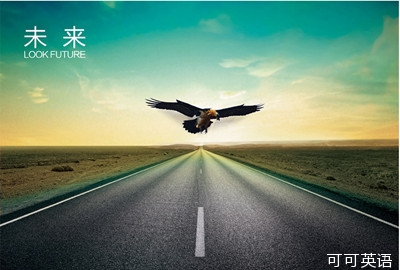(单词翻译:单击)
When people talk about the past, they tend to lean slightly back. And if folks talk about things to come they tend to lean forward. Various studies have revealed those physical attitudes. Now a study finds that people usually experience time as if we are literally moving toward the future and away from the past.
当人们谈到过去的事情时,身体总是会稍微后仰。当人们谈起即将发生的事情时,身体往往会向前倾。虽然各式各样的研究已经揭示了身体姿势的秘密,但有项研究发现人们对时间的体验往往是这样的:仿佛我们真的在不断地走向未来,远离过去。

Through surveys researchers first determined that subjects perceive future events as being closer than past events, even if the events are equidistant. Then the scientists had subjects experience a virtual reality where they were either walking towards a fountain or backwards away from it. And as they walked, the subjects had to estimate the distance of a specific date. The date they were given was either three weeks ago or three weeks in the future. The participants backing away from the fountain perceived the dates as being equidistant from the present. But those walking towards the fountain estimated the future date to be closer than the past date.
通过调查,研究人员首次确认了在受试者的意识里未来的事件比过去的事件更接近一些,即使这些事件在时间上是等距的。其后科学家让受试者去感受虚拟的现实,即让他们朝喷泉的方向前进或者朝远离它的方向倒退。同时让受试者估计某个特定时间所代表的距离。给受试者的日期或者是三星期前,或者是三星期后。远离喷泉后退的参与者感知的日期与现在是等距的。然而朝喷泉前进的受试者估计的未来的日期更接近于现在。
The researchers interpret the finding to mean that the future feels closer because it seems like we’re literally moving towards it. Gives new meaning to the phrase, “Looking forward to seeing you.”
研究人员解释道,这项研究说明未来给人的感觉更近,因为我们似乎确实在向未来前进。这给短语“Looking forward to seeing you(期望与你再见面)”赋予了新的含义。
原文译文属可可原创,未经允许请勿转载!


